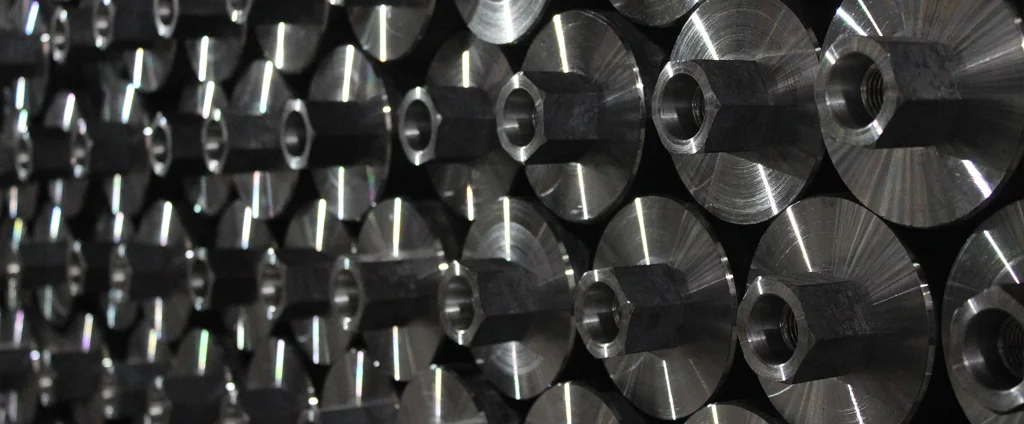SAE/AISI 1144 Carbon Steel (UNS G11440)

SAE/AISI 1144 carbon steel is a medium-carbon, resulfurized alloy known for its exceptional machinability and high strength. The combination of these properties makes it a versatile choice for industries requiring reliable performance, including automotive, industrial machinery, and fastener manufacturing.
| Chemical Composition | ||
|---|---|---|
| Element | Min | Max |
| Iron | 97.5% | 98.0% |
| Carbon | 0.40% | 0.48% |
| Manganese | 1.35% | 1.65% |
| Phosphorous | —— | 0.04% |
| Sulfur | 0.24% | 0.33% |
The following table provides a list of SAE/AISI 1144 properties in both SI and US customary/Imperial units.
Click on the button to switch between Metric and Imperial units.
| Physical Properties | Metric |
|---|---|
| Density | 7850 kg/m3 |
| Mechanical Properties | Metric |
| Tensile Strength (Ultimate) | 745 MPa |
| Tensile Strength (Yield) | 620 MPa |
| Young’s Modulus (E) | 190 - 210 GPa |
| Bulk Modulus (K) | 140 GPa |
| Shear Modulus (G) | 80 GPa |
| Elongation at Break | 10% |
| Reduction of Area | 30% |
| Poisson’s Ratio (ν) | 0.27 - 0.30 |
| Brinell Hardness | 217 |
| Thermal Properties | Metric |
| Thermal Conductivity | 51 W/m·K |
| Specific Heat Capacity (Cp) | 470 J/kg·K |
| Coefficient of Thermal Expansion (αL) | 1.3×10-5 1/°C |
| Electrical Properties | Metric |
| Electrical Conductivity | 4.18×106 S/m |
| Electrical Resistivity | 2.4×10-7 Ω·m |
The values in this table are approximate and can vary depending on various factors such as the specific manufacturing process and heat treatment applied to the alloy.
Advantages & Disadvantages of 1144 Carbon Steel
| Advantages | Disadvantages |
|---|---|
| High strength | Limited weldability |
| Improved machinability | Lower toughness |
| Good wear resistance | Limited hardenability |
| Cost-effective | Corrosion susceptibility |
Applications of 1144 Carbon Steel
SAE/AISI 1144 carbon steel is widely used in industries that require a combination of strength, machinability, and wear resistance. Common applications include:
- Machined Components: The steel’s excellent machinability makes it suitable for producing various machined components such as shafts, pins, bushings, spindles, and gears. Its improved chip control and reduced tool wear contribute to efficient machining operations.
- Fasteners: Due to its high strength and good mechanical properties, it is often used in the production of fasteners like bolts, studs, screws, and rivets. These components require reliable strength and load-bearing capacity.
- Automotive Parts: It is utilized in automotive applications where strength and wear resistance are crucial, including components like axles, gears, camshafts, crankshafts, and connecting rods.
- Hydraulic Fittings: The combination of strength and machinability makes this steel suitable for hydraulic fittings such as couplings, adapters, and connectors, which require both mechanical strength and ease of machining for proper assembly.
- Tooling and Dies: While not as common as tool steels, SAE/AISI 1144 can be used for tooling and dies in certain applications where its machinability is advantageous.
- Industrial Machinery Components: Components like shafts, couplings, spindles, and bushings benefit from this alloy’s combination of strength and machinability, ensuring reliable machinery operation.
- Pump Shafts: Its wear resistance makes it suitable for pump shafts that experience friction and abrasive forces. The machinability of the alloy ensures precise manufacturing of shafts with necessary dimensions and tolerances.
